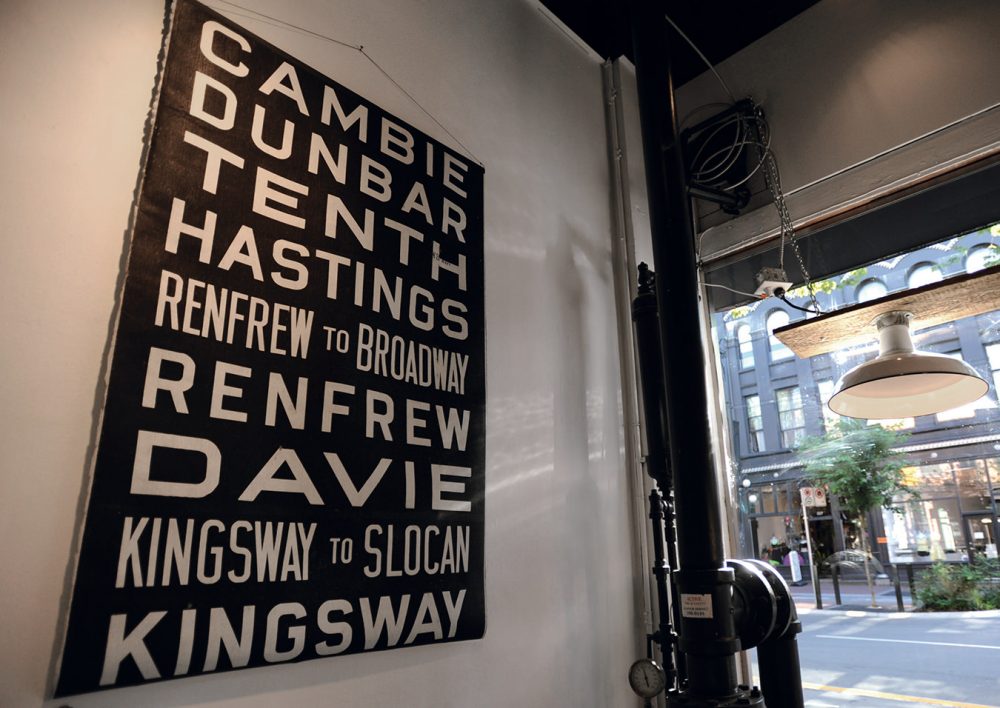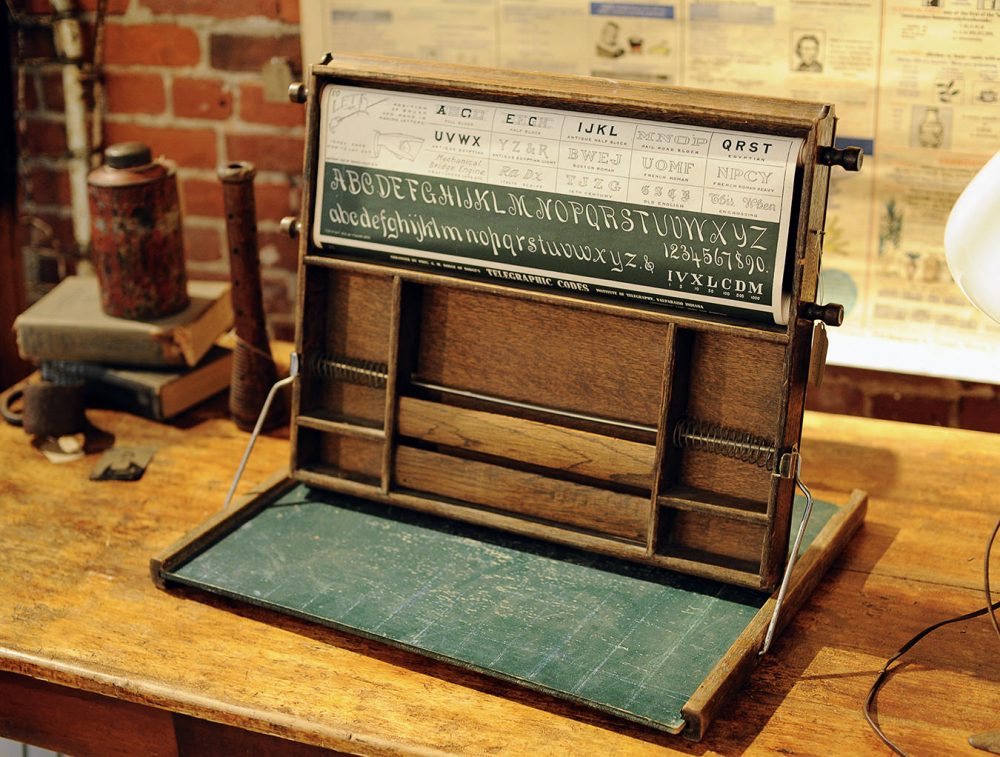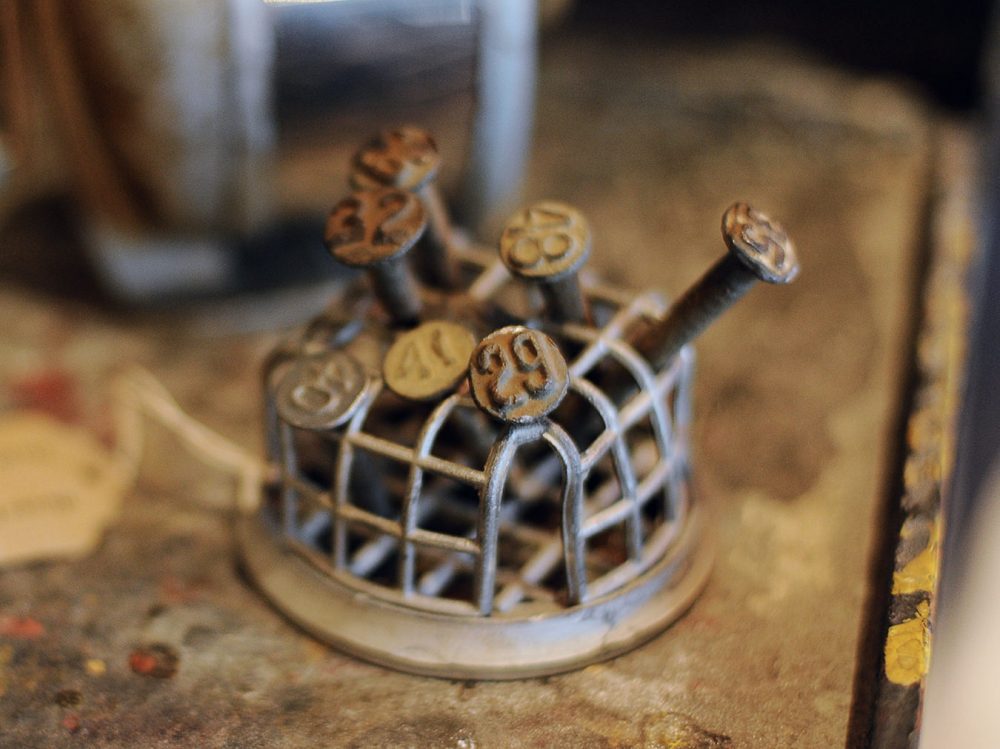A vaulting horse. Gooseneck lamps. A baker’s paddle. Medical charts. These are just a sample of the motley objects you might have seen at the Found and the Freed, an that appeared for five weeks in Gastown this summer. It was the physical manifestation of a friendship, united by a love of old things, between three young women: Lindsay and Ainsley McIntyre, sisters from Edmonton, and Lindsay Burke, a Vancouver native. The trio often considered selling items from their burgeoning personal collections, and had dabbled with the idea in a few previous iterations, but it wasn’t until opportunity knocked that they made the store a reality.
When a short-term lease at 206 Carrall became available in June, Burke and the McIntyre sisters took advantage of the unit to debut their first solo pop-up shop. The concept for the project is expressed through its name; the three women hunt for objects that can be given a new life, either by maintaining their original functions or through creative reuse. “We found a locker we thought would make a very good armoire for somebody,” says Lindsay McIntyre. She gestures toward a few Vancouver bus rolls, which, when unfurled as posters hanging on the wall, display all the individual street names and stops together as they were never intended to be seen.
Over the course of two years, Burke and the McIntyre sisters have embarked on dozens of driving adventures across British Columbia, the Prairies, and Quebec, as well as through some of the northern United States, attending auctions, visiting second-hand shops, junk and salvage yards, estate sales and yard sales, packing little (and not so little) curiosities into the back of their truck like Tetris blocks. While on the road, the women also cultivate personal connections with the locals they meet to discover where they might find their next treasures. The forays themselves may be transient, but the impression they leave is not. “It turns into your lifestyle,” Burke says. “It doesn’t matter where you go, it gets into your skin and every city you go to, whatever you do, you’re looking and thinking about [collecting]. It’s a constant.”
All three women are attracted to industrial items that are well made, simple in design and well used. While the Found and the Freed’s ever-changing collection consists of objects they uniformly adore, the women each have their own idiosyncrasies in terms of the kinds of items they are drawn to. For Lindsay McIntyre, it’s optical devices, old technologies such as typewriters and letterpress implements and maps. Her sister, Ainsley, finds industrial and antique lighting irresistible; she is the one who rewires old electrical devices to ensure they are safe for reuse. Burke has an affinity for things of a graphic nature like clocks and group photographs. They also express a collective fondness for what they call primitive objects—things that people put together out of necessity using whatever materials they had—such as a desk with drawers made of old boxes or a fan Frankensteined together using various metal parts. “They’re not so disposable. They’ve stood the test of time,” says Burke.
As all three women engage in finding, researching and dating each item, they often uncover stories about the objects that their new owners can take home with them. The Found and the Freed is more than just a treasure trove of unique objects; it provides a wealth of insight into North American history and culture. Lindsay describes a man who was in the store examining their railroad date nails. He had spent years pulling them out of the ground and had no clue as to their purpose; the women were able to explain to him that the numbers were for record-keeping purposes and corresponded to the year each railroad tie was put under the tracks.
The hardest part for Burke and the McIntyre sisters, however, has been learning to master the fine art of letting go. “In the beginning, it was hard to part with things because they were, kind of, our things,” says Ainsley McIntyre. “Now, we just know we’re going to keep on finding more cool stuff.” Although they won’t have nearly the space to house all the things they find and love, they can rest assured that someone else out there, who will cherish it all the same, might.
Photos: Will Rendall.











